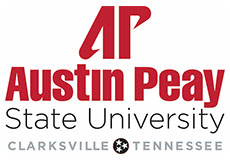 Clarksville, TN – The Austin Peay State University (APSU) Speech-Language and Swallowing Community Clinic is launching an innovative new two-week program to treat individuals with chronic aphasia, a language disorder that impacts communication.
Clarksville, TN – The Austin Peay State University (APSU) Speech-Language and Swallowing Community Clinic is launching an innovative new two-week program to treat individuals with chronic aphasia, a language disorder that impacts communication.
The Clarksville Conversation Care – Intensive Comprehensive Aphasia Program (CCC-ICAP) will provide free treatment for up to eight participants through a Clarksville-Montgomery County Community Health Foundation grant.
Sessions are scheduled from 8:15am – noon on January 22nd-25th and January 29th – February 2nd at 255 Marion Street, and registration is open now by calling 931.221.1622.
“As far as we know, nothing like this has been provided to the community before,” said Jennifer Brandon, clinical education coordinator and clinical assistant professor for Austin Peay State University’s Master of Speech-Language Pathology (MSLP) program. “I think the need is there for a comprehensive treatment program for our aphasic adults, and it’s also a good learning opportunity for our students.”
Each participant will be paired with a student clinician during their treatment, and credentialed Austin Peay State University faculty members will supervise those clinicians. The team aims to provide personalized therapy to improve participants’ functional language skills and ability to communicate with their loved ones.
“Having this depth of experience with adults with chronic aphasia is something a lot of training programs aren’t able to offer,” said Dr. Kelly Kleinhans, associate professor and program director for Austin Peay State University’s MSLP program. “We’re also having a family support group as part of the program, so not only will the students be working with the person with aphasia in traditional ways, they’ll be able to work with their families.”
Assistive technology is another important part of the program, and Kleinhans said participants will learn how to use it to augment their communication and create self-paced home treatment strategies.
“We’re [also] going to be working toward hosting a real-life photo exhibit, so they’re going to learn about photography and how to take pictures that can help them express themselves,” Kleinhans said. “On February 2nd … they and their families will be at an art exhibit open and promoted to the general public. That means people can come and talk to our friends with aphasia, and they can practice all the communication skills they’ve been working on.”
To participate in the program, individuals must have been living with chronic aphasia for more than six months due to a stroke or other neurological disorder. Functional comprehension and a support system are also required.
“They just need to call our clinic or email us directly [at slpclinic@apsu.edu], and we’ll make sure they fit the criteria and get them signed up,” Brandon said. “It’s an intensive program, but also a short duration. Our research shows that prescriptive therapy has been shown to deliver good outcomes … [and] we’re excited to provide this for the community.”



